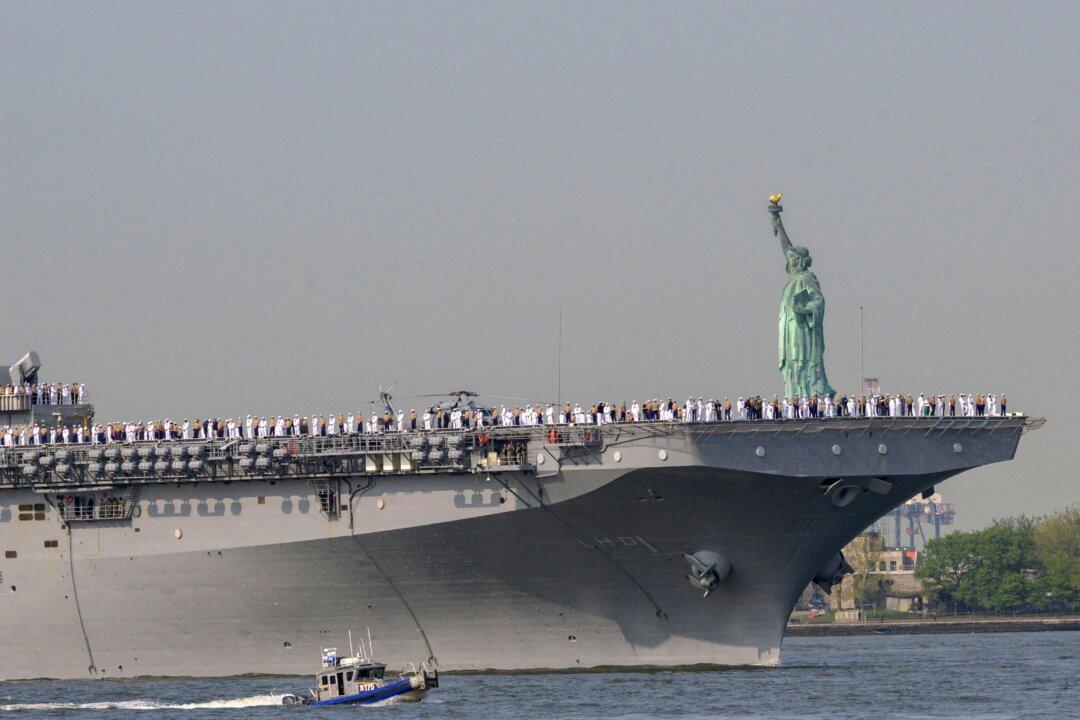As tensions rise between China and the Philippines over islands and resource rights in the South China Sea, the Biden administration has drawn a line in the sand.
“The United States stands with our Philippine allies in upholding the rules-based international maritime order and reaffirms that an armed attack in the Pacific, which includes the South China Sea, on Philippine armed forces, public vessels, or aircraft, including those of the Coast Guard, would invoke U.S. mutual defense commitments under Article IV of the 1951 U.S. Philippines Mutual Defense Treaty,” the statement read.
Article IV of the defense treaty states: “Each Party recognizes that an armed attack in the Pacific Area on either of the Parties would be dangerous to its own peace and safety and declares that it would act to meet the common dangers in accordance with its constitutional processes. Any such armed attack and all measures taken as a result thereof shall be immediately reported to the Security Council of the United Nations. Such measures shall be terminated when the Security Council has taken the measures necessary to restore and maintain international peace and security.”
U.S. military forces could therefore be called upon to defend Philippine coast guard vessels from the China coast guard, naval, or maritime militia vessels, all of which fall under the command of the People’s Liberation Army (PLA) Navy.
Given that China and Russia would likely veto any United Nations Security Council action in defense of the Philippines, it remains to be seen if the United States and a coalition of the willing—with the United Kingdom, Japan, and Australia as likely participants—will defend the Philippines against the PLA’s ongoing aggression.

The latter famously broke with the United States to reorient the Philippines toward China and beg for $180 billion in development loans. Only $422 million came through, however, which disappointed the country’s China advocates and likely disillusioned the Philippine electorate over any hope that China was friendly toward the Philippines.

The Chinese Communist Party’s broken promises, territorial aggression against most of its neighbors, and claim to regional hegemony in Asia are causing an arms race between not only the United States and China, but among China’s neighbors, which are attempting to deter any further Chinese territorial aggression through closer defense cooperation. Japan, India, Bhutan, Vietnam, Indonesia, Malaysia, Brunei, and Taiwan also have territorial disputes with China.
On April 30, China’s foreign ministry spokesperson issued a written statement saying, “The U.S., as a country outside of the region, must not interfere with the South China Sea matter or use the South China Sea matter to sow discord among regional countries.”
Beijing and Moscow are trying to assert that they have spheres of influence, much as the United States had in the 19th century over Latin America, that would preclude involvement from the United States and the European Union in Asia or the former Soviet republics. Some of their officials and analysts would even claim that countries in these regions lack sovereignty as regional power concentrates in Beijing and Moscow.
The countries of these regions would beg to differ and are backed by international law and the military and economic power of the United States, the European Union, and allies like Japan and South Korea. As long as Beijing and Moscow do not bribe their way to victory, the democracies of the world can and must resist their attempts at regional hegemony, which could turn into wars for global hegemony at some point in the future.
A lasting peace can likely only be achieved when Moscow and Beijing democratize and thus become part of the supporters of peace, democracy, and human rights globally rather than their main detractors.





